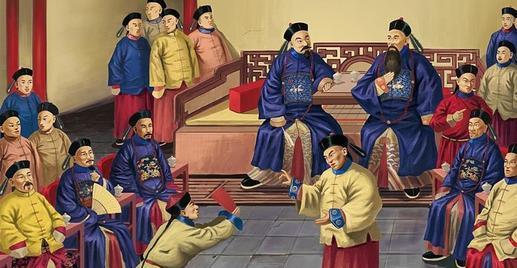History has its own life, it is like a person, both easy-going and self-respecting. ——Yu Qiuyu
During the Qing government, the Qing government did not try to resist imperialist aggression, but because of its backward domestic politics and weak army, in the end there was no way to resist the division of the imperialist powers. But the Qing government did pay a lot of losses in the process of fighting against the imperialist armies, for example, when the Anglo-French coalition attacked the city of Beijing, the Mongol cavalry of the Qing government once burst out with incredible courage to attack the Anglo-French army. Although this practice was a very stupid practice in the era of hot weapons and weapons at that time, their courage deserves to be remembered by future generations.

The Mongol cavalry led by Senggelinqin at that time fought fiercely for several hours, and the army was almost completely destroyed. The number of Qing troops killed more than 8,000 alone, which is also almost rare in the history of European wars, but the losses they caused to the British and French coalition forces were almost negligible, mainly because the military system of the two sides was not an era at all.
When the Anglo-French coalition defeated the Mongol cavalry of the monk Greenqin and approached the city of Beijing, the Xianfeng Emperor, who was the leader of the Qing government at that time, also fled the city of Beijing in a hurry, claiming to be a northern hunt, but in fact it was fleeing, and the Anglo-French coalition army also subsequently attacked the capital of the great empire, Beijing. This was a near-unavoidable humiliation in Chinese history, and the Anglo-French forces committed unashamed crimes in the city of Beijing, and they even burned down the yuanmingyuan, the pinnacle of qing government art at the time. The total destruction of the Mongol cavalry led by Senggelinqin also brought a huge blow to the military strength of the Qing Dynasty. Because this Mongol cavalry was originally one of the two cores of the Qing Dynasty's military strength, and as early as before, the Jiangbei Army, as another core, was also completely destroyed in the war with the Taiping Heavenly Kingdom, which symbolized that the military pillar of the Qing Dynasty was almost collapsed.
However, the Qing Empire at that time was not without a strong army, for example, the Xiang Army itself commanded by Zeng Guofan was very tenacious in combat, and because it was subsidized by local finances, its equipment was still relatively advanced. At that time, Zeng Guofan was already the commander-in-chief of the Qing Dynasty's war against the Taiping Heavenly Kingdom, and the number of Xiang troops under his direct command had exceeded 120,000, and in the case of the total destruction of the Mongol army led by Senggelinqin, this army was already the only army in the hands of the Qing government with combat effectiveness.
When the Anglo-French coalition forces approached the city of Beijing, the Xiang army led by Zeng Guofan had already surrounded Anqing, the military town of the Taiping Heavenly Kingdom. Once Anqing fell, the situation in the entire Taiping Heavenly Kingdom would become completely irreparable. At this time, Zeng Guofan received a letter from the imperial court, which ordered Zeng Guofan to immediately mobilize elites to the north to ensure the safety of Beijing, but Zeng Guofan finally decided not to obey the orders of the imperial court under the consideration of the overall situation. Zeng Guofan himself did not believe that the commander of the northern army at that time, Shengbao, and if the elite were drawn at this time, then the Hope of the Xiang Army besieging Anqing and conquering Anqing would become slim. At this time, Zeng Guofan believed that the destruction of the Taiping Heavenly Kingdom was more important than the defense of the Jingshi.
The final result of this was that the imperial court was forced to sign the Treaty of Beijing with the British and French allies, and Zeng Guofan was even more reluctant to send troops north to support the Beijing Division after the peace agreement between the two sides was reached. Although Zeng Guofan finally conquered Anqing, and the Taiping Heavenly Kingdom Movement fell into an irreparable situation, Zeng Guofan's reluctance to support Jingshi at that time was also directly related to the strategic situation he faced at that time.